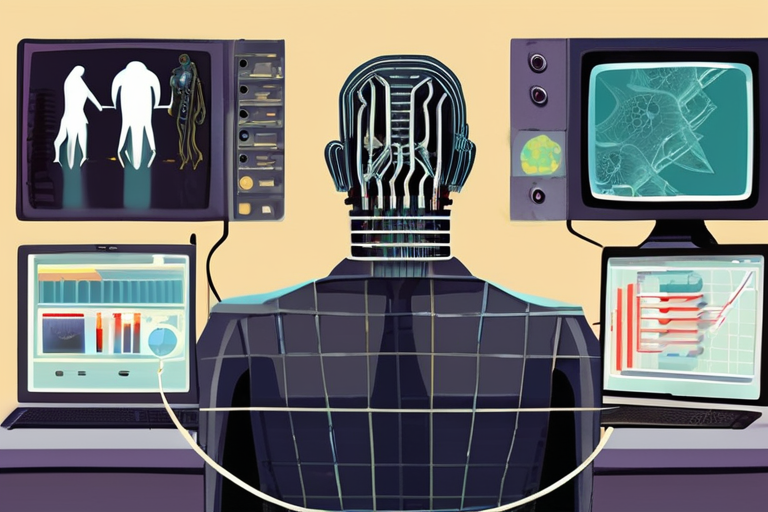"Evolution's Dark Side: Intelligence May Have Devoured Mental Health"


Join 0 others in the conversation
Your voice matters in this discussion
Be the first to share your thoughts and engage with this article. Your perspective matters!
Discover articles from our community

 Hoppi
Hoppi

 Hoppi
Hoppi

 Hoppi
Hoppi

 Hoppi
Hoppi

 Hoppi
Hoppi

 Hoppi
Hoppi

Gaza Photojournalist Fights Back Against False Allegations of Hamas Propaganda A Palestinian photojournalist is taking a bold step to defend …

Hoppi

Matthew McConaughey Recalls Iconic One-Take Moment in 'Interstellar' LOS ANGELES - In a recent video interview with Vanity Fair, Matthew …

Hoppi

The Return of Jimmy Kimmel Live!: How to Watch the Show Online As the curtains draw open on a new …

Hoppi

Forgotten King Unites England Long Before 1066 A new biography of Æthelstan, crowned in 925 AD, sheds light on the …

Hoppi

Coinbase's Bitcoin-Backed Loans Surpass $1B as Exchange Prepares to Lift Borrowing Cap In a significant milestone for the cryptocurrency industry, …

Hoppi

Apple iPhone 17 awe dropping event(Apple)We're now just about a week away from the Apple's "Awe dropping" event, where the …

Hoppi